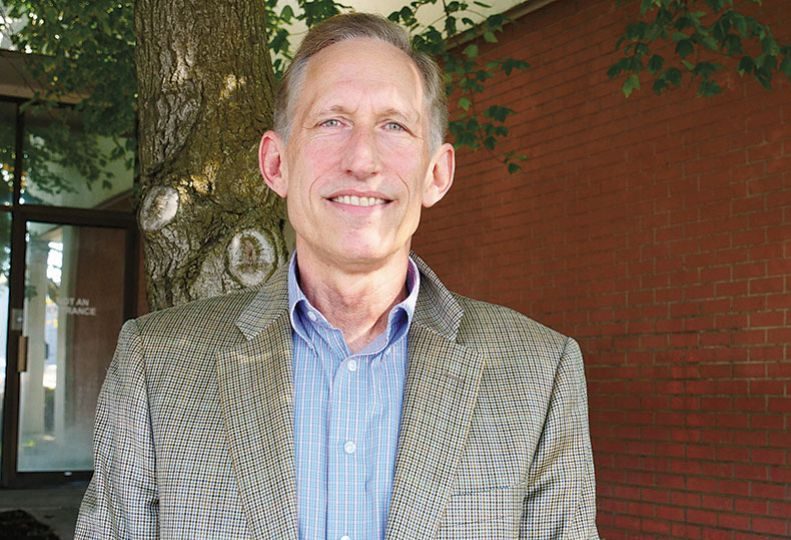
Home » Wish-granting nonprofits face backlog as costs rise
Wish-granting nonprofits face backlog as costs rise
Referrals rose as trips were canceled, delayed

October 20, 2022
Nonprofit organizations that grant wishes to critically and terminally ill children here say that many wishes have become more expensive in the past two years, during which time a backlog of ungranted wishes grew.
Hugh Severs, executive director of Spokane Valley-based nonprofit Wishing Star Foundation, says the average cost of a wish has nearly doubled to $16,500 from $9,000 before the pandemic. About half the cost of a wish is typically covered by local partners through in-kind and direct donations, leaving Wishing Star to pay about $7,500 per wish, Severs says.
With costs rising and an annual budget of about $750,000, Severs says it’s tougher now for Wishing Star Foundation to serve as many children as it once did.
“Travel wishes got extremely expensive,” Severs says. “We have airline mile donors, but boy, those miles don’t go nearly as far as they used to.”
Many travel wishes were canceled or postponed during the early days of the COVID-19 pandemic, Severs says.
Angela Miller, Spokane-based senior director for regional offices for Make-A-Wish Alaska & Washington, says some children who had originally wished to travel changed their wishes during the pandemic.
“A lot of families chose to change the wish to something that we were able to grant right away,” she says. “What we saw was, those wishes became things like play sets or hot tubs or online shopping sprees or room redecorations.”
Make-A-Wish is working its way through a buildup of ungranted wishes. Miller says 156 children currently are waiting for their wishes to be granted. The organization had a waiting list of up to 120 children in Eastern Washington prior to the pandemic.
“While a lot of the wishes were on hold, referrals didn’t stop,” Miller says. “Kids are still getting diagnosed with critical illnesses through the whole pandemic. Referrals continued to come in at the same rate, but wishes weren’t being granted at the same rate.”
Severs says Wishing Star Foundation has experienced a similar dynamic.
The organization plans to grant a total of 18 wishes this year, 11 of which have already been granted. In 2020, Wishing Star Foundation served 24 children, up from 18 children whose wishes were granted in 2019.
Miller says Make-A-Wish is on track to fulfill 55 wishes in Eastern Washington in 2022. In 2021, the organization granted 40 wishes here, a decrease from 54 the previous year, and less than half of the 83 total wishes granted in 2019.
Make-A-Wish Alaska & Washington serves both states, while Wishing Star Foundation serves a comparatively smaller area consisting of the greater Spokane and Tri-Cities areas.
Miller says that while travel wishes were on hold for more than a year, the requests that Make-A-Wish was able to grant increased in cost.
“Because of supply chain issues and labor resource issues, everything was more expensive, and with inflation, the cost of our wishes was skyrocketing during that time,” Miller says. “We’re still feeling the effects of that.”
Make-A-Wish has returned to granting travel wishes within the U.S., but the cost of travel also has increased, Miller says.
Make-A-Wish and similar organizations are facing competition for airline seats, rental cars, and hotel stays from other travelers.
“The whole world is trying to get back out and travel again,” Miller says.
International travel wishes are still on hiatus, per the recommendations of Make-A-Wish’s medical advisory council.
In addition to higher travel costs, Miller says it’s harder to get help from companies in the transportation and hospitality industries.
“The travel industry was so impacted by COVID that a lot of our partners who were able to offer us donations and discounts in the past don’t have that capacity right now,” Miller says.
Severs says that Wishing Star has begun to reconsider the scope of its wishes. Not every child’s request has to be extravagant, he says.
“If a kid wants to just go to someplace somewhat local and just have a party or some type of experience—maybe it costs $2,000,” Severs says. “That’s okay if that’s what the child wants.”
He says he met Wishing Star Foundation founder Karen Kurowski, now 83 years old and living in Boise, earlier this year. She encouraged Severs to grant local wishes in addition to travel.
“I wanted to get a sense of the history of the organization because it helps guide where you’re going to take it,” he says. “She was of the belief that travel wishes are great, but it’s nice to have a mixture of local community wishes, because it engages a local community in what we’re doing.”
Latest News Up Close Health Care
Related Articles
Related Products
Related Events




